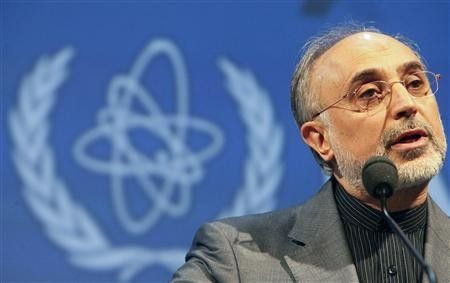Pariah States Iran And Syria Strengthen Ties As Salehi Meets Assad

Iranian Foreign Minister Ali Akbar Salehi met with Syrian President Bashar al-Assad on Wednesday to discuss the ongoing violent conflict between Syrian forces and armed rebels.
“The objective of my visit to Syria is to consult with the country’s officials to reach a unified conclusion on a solution to the Syrian crisis,” Salehi said upon his arrival, according to Agence France-Presse.
Syrian news agency SANA reported that the atmosphere was “positive” as Assad and Salehi sat down to discuss the Syrian rebel crisis.
The two also discussed Salehi’s trip to Cairo earlier this week, where he had called for an end to the violence in Syria and recommended the cessation of any and all military assistance to either side.
Iran is widely assumed to be providing military aid to the Syrian regime. Tehran denies these allegations, except for an admission this week by Iranian Major General Mohammed Ali Jafari that members of Iran’s elite Republican Guard had been deployed to Syria to serve as advisers.
Syria and Iran are staunch allies. Both countries are ruled by Shiite Muslims; Iran is presided over by the Ayatollah Ali Khamenei, while the Syrian regime is mostly Alawite, a Shia sect. They share strategic bonds as well; the two countries are united in their opposition to Western and Israeli interests, as well as their support for Islamist groups like Hezbollah and Hamas.
Iran has sided with the Assad regime since the Syrian uprising began. More than 27,000 people have so far lost their lives over 18 months of increasingly bloody conflicts, and no resolution is in sight.
A team of United Nations observers was withdrawn from Syria in August after peace plans failed, and concerns about chemical warfare are growing. In an interview with the Times of London published on Monday, a defected Syrian general said that the Assad regime was prepared to use chemical weapons on the rebels “as a last resort.”
Such a decision could motivate the United States to intervene in Syria, said U.S. President Barack Obama in August -- despite myriad concerns about pursuing U.S. involvement in yet another Middle Eastern conflict.
The hazards of intervention are compounded by Tehran’s ties to Damascus.
“Syria has very strong, solid ties with Iran, especially at the political level,” affirmed Salehi on Wednesday, adding that further discussions were in order.
“We will be consulting on all political aspects of this problem that Syria is facing,” he said.
© Copyright IBTimes 2024. All rights reserved.





















